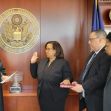On Tuesday, the Federal Trade Commission (FTC) issued a landmark final rule that bans noncompete clauses nationwide, heralding a major shift in labor and competitive practices across the United States. This move aims to enhance worker mobility, stimulate innovation, and encourage the formation of new businesses. FTC Chair Lina M. Khan highlighted that the ban could liberate the economy from constraints that suppress wages, stifle innovation, and limit business creation.
Noncompete agreements have traditionally restricted employees' ability to seek new employment opportunities within the same industry, often forcing them to change fields, relocate, or face legal battles. The new rule is expected to empower approximately 30 million workers currently bound by noncompetes, enabling them to pursue better employment without fear of litigation.
The economic impact of this ruling is significant. The FTC projects an annual increase of 2.7% in new business formation, translating to over 8,500 new startups each year. Additionally, the ban is anticipated to boost average worker earnings by $524 annually and potentially reduce healthcare costs by up to $194 billion over the next decade. The rule is also predicted to spur technological advancement, with an estimated 17,000 to 29,000 additional patents filed annually.
Despite these positive projections, the rule includes provisions for existing noncompete agreements with senior executives, who make up less than 0.75% of the workforce, allowing these to remain in force. However, new noncompetes, even with senior executives, are prohibited. Employers are required to notify workers that existing noncompetes will not be enforced moving forward, with the FTC providing model language to facilitate this communication.
The decision, which passed with a 3-2 vote, reflects the FTC's commitment to addressing anti-competitive practices in the labor market. The dissenting votes from Commissioners Melissa Holyoak and Andrew N. Ferguson underscore the contentious nature of this policy shift. The rule is set to take effect 120 days after its publication in the Federal Register.
This ruling aligns with broader FTC efforts to enhance market competition and worker rights. It is grounded in the belief that eliminating noncompetes will lead to a more dynamic and equitable labor market, benefitting both consumers and the broader economy. Companies are advised to adjust their employment strategies, moving away from noncompetes towards alternative methods like non-disclosure agreements to protect proprietary information, thus ensuring compliance with the new regulatory landscape.
The FTC continues to accept feedback and reports of noncompliance, ensuring that the transition away from noncompete clauses is smooth and that the benefits of the rule are fully realized. As the marketplace adapts to these changes, the full impact on competition, innovation, and worker mobility will unfold, potentially setting a precedent for other regulatory reforms in labor and competition law.






